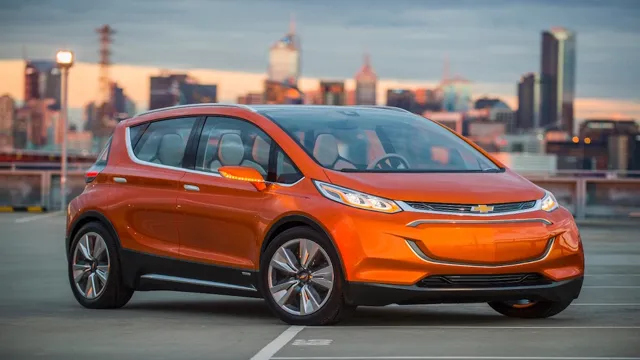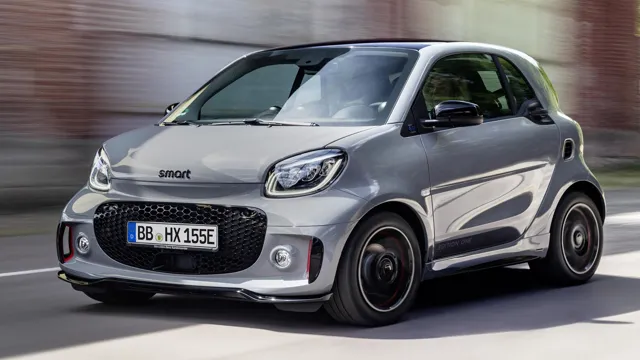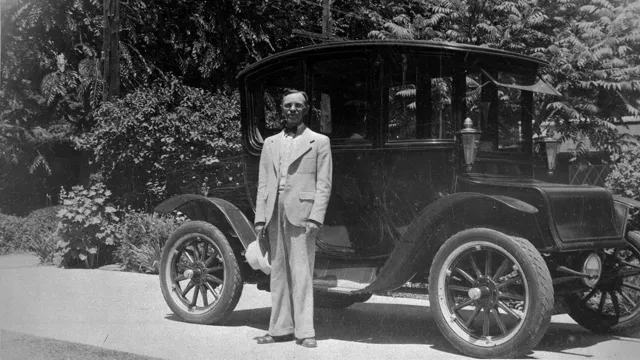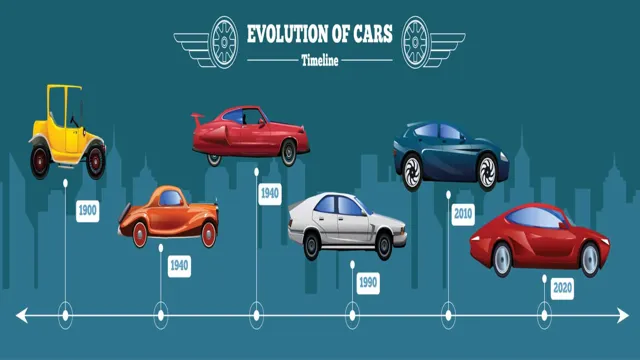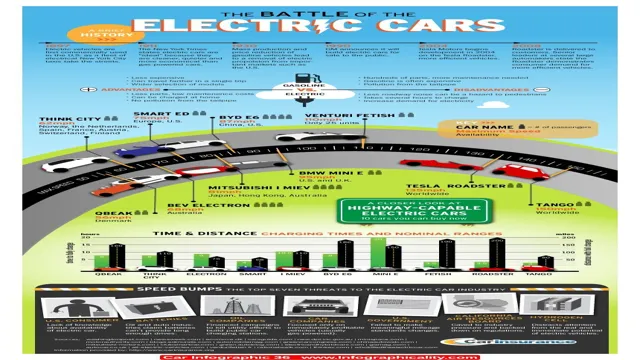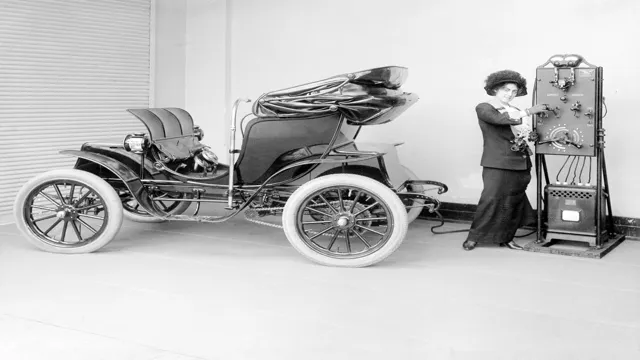Revolutionizing the Roads: The Fascinating History of GM Electric Cars
When it comes to electric cars, there’s no doubt that Tesla takes the spotlight. However, did you know that General Motors (GM) has a long history with electric vehicles as well? In fact, GM was one of the pioneers of electric cars, starting with the EV1 in the late 1990s. While the EV1 was ultimately scrapped due to lack of profitability, GM never gave up on electric cars.
In recent years, the company has made a significant push towards electric vehicles, with models like the Chevy Bolt and upcoming GMC Hummer EV. Let’s take a closer look at GM’s electric car history and how they’re positioning themselves for the future of the automotive industry.
Early Years of EV Development
GM played a significant role in the early years of EV development. In fact, the company began exploring the potential of electric cars back in the 1960s. However, it wasn’t until the 1990s that GM became more actively involved in electric car development.
In 1990, GM unveiled the Impact concept car, which was an all-electric vehicle that could achieve up to 80 miles per hour. This prototype was the basis for the production version of the EV1, which was released in 199 While the EV1 was only available for lease, customers who chose to try it out praised its smooth and quiet performance, plus its environmental benefits.
Despite this, GM ultimately decided to stop producing the EV1 in 2003 due to low demand and the high costs of production. Nonetheless, the EV1 received critical acclaim for being one of the first modern electric cars. Today, GM continues to prioritize the development of electric vehicles as part of its commitment to reducing carbon emissions and promoting sustainability.
1966-1990: Experimental Electric Vehicles
During the period spanning from 1966 to 1990, the automotive industry witnessed significant experimentation in the development of electric vehicles. These early years were characterized by attempts to create vehicles that would function on electric power, rather than gasoline. While the concept was simple, it was challenging to execute in practice.
Engineers and scientists were faced with numerous technical challenges such as developing batteries capable of holding a charge long enough to power these vehicles for extended periods. Despite the technical hurdles, these early adopters persisted, and their experimentation laid the foundation for the EV industry of the future. Today, they are hailed as pioneers who paved the way for the current generation of electric vehicles.
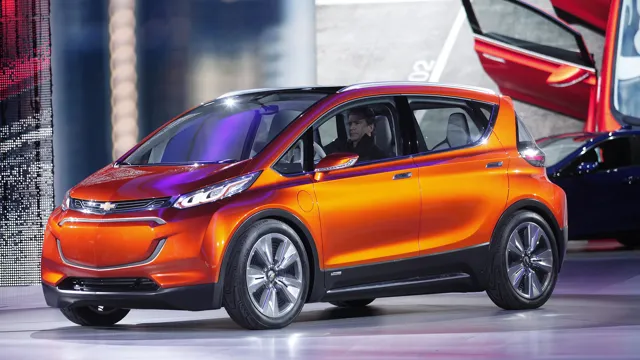
1996: Introduction of the EV1
In 1996, General Motors (GM) introduced the EV1, marking the beginning of the early years of electric vehicle (EV) development. The EV1 was a sleek two-seater electric car that caught the attention of car enthusiasts and environmentalists alike. It was one of the first mass-produced electric cars, and it boasted an impressive driving range of up to 140 miles on a single charge.
However, despite its initial success, the EV1 faced numerous challenges. Many drivers were concerned about the limited availability of charging stations, and the high cost of the vehicle made it inaccessible for most consumers. GM eventually discontinued the EV1 in 1999, but its legacy lived on.
The EV1 sparked a renewed interest in electric vehicles and paved the way for future EV models. Today, electric cars are becoming more and more popular, and major automakers are investing heavily in EV technology to meet the growing demand for environmentally-friendly vehicles.
Discontinuation and Renewed Interest
GM’s electric car history has seen both moments of discontinuation and renewed interest. In the 1990s, GM developed the EV1, an electric car that was popular among early adopters in California. However, the project was discontinued in 2003, with GM citing lack of demand and high production costs.
It wasn’t until the release of the Chevrolet Volt in 2010 that GM re-entered the electric car market. The Volt presented a new hybrid system that utilized both an electric motor and a conventional gasoline engine, allowing for longer driving ranges. In recent years, GM has doubled down on electric cars with the introduction of the Bolt EV and the promise of an all-electric future.
While GM’s electric car history has had its ups and downs, it’s clear that the automaker is committed to a sustainable future.
2003-2010: Cancellation of EV Programs
During the period between 2003 and 2010, many environmental and energy programs were canceled, including Electric Vehicle (EV) programs. However, in recent years, there has been a renewed interest in the development and use of EVs. Discontinuation of EV programs was mainly due to several factors, including the lack of government funding, insufficient technological advancements, and low demand from consumers.
Many carmakers were focused on producing gas-guzzling vehicles, and there was no incentive for them to develop EVs. Fortunately, things have changed over the years, and new EVs have been developed with better battery technology, longer-range, and faster charging. Additionally, governments worldwide have implemented policies and incentives to promote the use of EVs, such as tax credits, free parking, and charging stations.
These factors have contributed to the rise of EV adoption, and more electric vehicles are being produced by automakers. Today’s EVs offer numerous benefits, such as reduced air pollution, lower operating costs, and a quiet and smooth ride. Many people are beginning to recognize these benefits and are now considering buying an EV as a viable transportation option.
It’s exciting to see an increased interest in EVs and the necessary infrastructure to support them, and this trend is expected to continue in the future.
2016-Present: The Chevy Bolt and Future Plans
The Chevy Bolt has been making waves in the electric vehicle market since its introduction in 201 However, there have been some bumps in the road for the Bolt, as Chevy temporarily halted production due to low sales. But recently, there has been renewed interest in the Bolt as a practical and affordable EV choice.
The Bolt boasts an impressive range of over 200 miles on a single charge, which has helped to put it back on the map in an increasingly competitive market. Looking toward the future, Chevy has announced plans to release a refreshed Bolt in 2022, with promises of improved range and features. With the recent uptick in demand for electric vehicles, and Chevy’s plan for continued innovation, the Bolt may be poised to solidify its place as a top contender in the EV space.
Benefits and Drawbacks of Electric Cars
The discontinuation of electric cars in the early 20th century brought an end to an era of sustainable transportation, but the renewed interest in electric cars has brought hope for a greener future. The benefits of electric cars are numerous; they emit zero or very low levels of pollutants, offer lower maintenance costs, and can save drivers thousands of dollars on gas. However, there are still some drawbacks to electric cars, such as their limited driving range and higher upfront costs.
Despite this, advancements in battery technology and charging infrastructure have made electric cars more practical and affordable. In fact, many major car manufacturers like Tesla, Nissan, and BMW are now exclusively developing electric cars. With the rise in renewable energy and the demand for sustainable transportation, it’s clear that electric cars are here to stay.
It’s time to embrace this eco-friendly alternative to traditional gasoline-powered cars and strive towards a cleaner future.
GM’s Impact on the EV Industry
GM has played a significant role in the development and evolution of electric cars. The company’s history with electric cars dates back to the early 1990s when it introduced the EV1, a sleek two-seat electric car that was ahead of its time. The EV1 was the first mass-produced electric car of the modern era and was met with excitement and enthusiasm.
However, GM discontinued the EV1 in 2003 due to financial reasons, leaving many electric car enthusiasts disappointed. Since then, GM has been gradually increasing its efforts in the electric car market. In recent years, GM’s Chevy Bolt has been gaining popularity as a more affordable electric car option.
Moreover, GM has announced plans to release 20 new electric cars by 2023, signaling a greater commitment to the electric car market. As such, GM’s impact on the electric car industry has been significant, and we can expect the company to continue to be a major player in the electrification of the automotive industry.
Technological Advancements and Innovations
When it comes to the electric vehicle (EV) industry, General Motors (GM) has made a significant impact with technological advancements and innovations. GM has been a leader in the development of cutting-edge electric vehicles, such as its Chevy Bolt, which was one of the first affordable, long-range EVs on the market. In addition to producing top-notch EVs, GM has also implemented innovative charging solutions for EV owners.
The company has partnered with charging networks and developed its own charging infrastructure to make EV charging more convenient and accessible. With GM’s focus on sustainability and reducing emissions, it’s no surprise that the company has become a driving force in the EV industry. As more automakers follow in GM’s footsteps, the future of electric vehicles looks bright.
Tesla and the Future of Electric Cars
GM, electric cars, future, impact General Motors (GM) has been known for its impact on the automobile industry, and they are now leaving their imprint on the electric vehicle (EV) industry as well. Their latest contribution is the Ultium battery, which promises to revolutionize the market with its efficiency, power, and affordability. This battery will provide a range of over 400 miles on a single charge, making it an excellent option for long-distance travel.
Additionally, its scalability and flexibility make it suitable for a wide range of EV models, from compact cars to pickup trucks. With this breakthrough technology, GM is positioning itself to become a key player in the future of electric cars. The Ultium battery technology is not only impressive, but it also shows GM’s dedication to sustainability, innovation, and meeting the needs of consumers who are moving towards more eco-friendly and cost-effective transportation options.
GM’s impact on the EV industry is undeniable, and we can expect to see a lot more from them in the future.
Conclusion and Looking Ahead
In conclusion, the GM electric car history can be summed up in one word: electrifying. From the initial development of experimental electric vehicles in the 1970s to the launch of the innovative Chevrolet Bolt in 2017, GM has been at the forefront of the electric car revolution. While the company may have had its ups and downs in the past, it has shown a steadfast commitment to driving innovation and pushing the boundaries of what is possible in the automotive industry.
As we look to the future, there is no doubt that GM will continue to lead the way in shaping the next generation of electric cars. So buckle up, plug in, and get ready for a wild ride as we power towards a cleaner, greener future with GM at the wheel!”
FAQs
What was the first GM electric car?
The first GM electric car was the EV1, introduced in 1996.
When did GM discontinue the EV1?
The EV1 was discontinued in 2003.
What was the range of the EV1?
The EV1 had a range of approximately 80-100 miles per charge.
Did GM produce any other electric cars besides the EV1?
Yes, GM also produced the Chevrolet Spark EV and the Chevrolet Volt.

